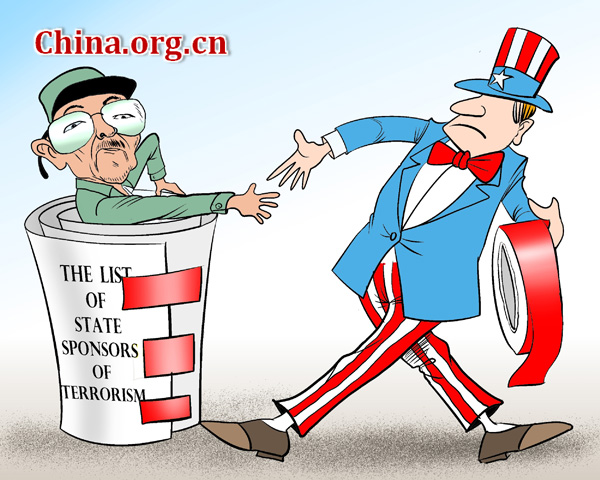US-Cuba relations: too early to judge
- By Giovanni Vimercati
 0 Comment(s)
0 Comment(s) Print
Print E-mail China.org.cn, May 20, 2015
E-mail China.org.cn, May 20, 2015
It's been hailed as a historic move, and in many ways it undoubtedly is. The gradual normalization of diplomatic relations between Cuba and the United States, which began with a more or less veiled prisoners' swap last year, is nonetheless still in its early and tentative stages.
|
[By Jiao Haiyang/China.org.cn] |
After Obama officially admitted that the hostile policies his country adopted toward Cuba have clearly failed, Raul Castro was quick to point out that in order for "normalization" to proceed fruitfully, the embargo America has imposed on the Caribbean island needs to be lifted. Raul Castro even hinted at the fact that Obama himself possesses the executive power necessary to lift the embargo by bypassing Congress (something the American president will, of course, never do).
The lifting of the embargo is for Cuba the condition sine qua non without which there cannot possibly be any further talks between the two countries, which have been divided by over 50 bitter years of Cold War rhetoric and skirmishes of varying degrees of seriousness.
Cuba has vigorously denounced the cruelty and illegitimacy of the economic embargo that has effectively crippled the island's economy and made any development, be it social or economic, slower and more difficult. Of course, now is not the time for recriminations because the benefits that lifting the sanctions would bring are far too important. Even so, the Cuban leadership is not in a supine position, and is on the contrary warning that both parties must be patient and that change will not materialize overnight.
Meanwhile the first signs of a new era are already here. Legal restrictions have been eased, and it is now allegedly easier for American citizens to travel to Cuba and, probably to a lesser extent, vice versa. A bill seeking to lift the trade embargo was introduced in Congress in February by a group of Democratic and Republican senators. The proposed legislation is said to focus more on the improvement of the economic aspects of the two countries' relations but remains firm on what America perceives to be the violations of human rights and civil liberties going on in Cuba.






